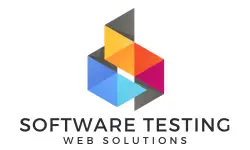Manual Testing
Overview
Curriculum
Training Features
Overview
Course Overview:
This comprehensive online Manual Software Testing course is designed to equip you with the essential skills and knowledge to excel in the field of software quality assurance. You’ll learn about the fundamental principles of software testing, various testing techniques, and how to effectively identify and report defects. Through hands-on exercises and practical examples, you’ll gain the confidence to contribute to the development of high-quality software products.
Benefits for Learners:
- Gain expertise in software testing: Master the core concepts and techniques of manual software testing.
- Enhance career prospects: Increase your employability in the software industry.
- Contribute to software quality: Play a crucial role in delivering reliable and bug-free software.
- Learn at your own pace: Access the course materials anytime, anywhere, and fit learning into your schedule.
- Receive expert guidance: Get support from experienced instructors throughout the course.
Course Objectives:
Upon completion of this course, participants will be able to:
- Understand the software testing lifecycle: Explain the different phases of testing and their importance.
- Design test cases: Create effective test cases based on software requirements and specifications.
- Execute test cases: Perform manual testing and document test results.
- Identify and report defects: Clearly communicate defects to the development team.
- Use test management tools: Utilize tools to track and manage test cases and defects.
- Apply different testing techniques: Employ various techniques to ensure comprehensive testing.
- Work effectively in a testing team: Collaborate with other team members to achieve testing goals.
Prerequisites:
- Basic computer skills: Familiarity with operating systems, web browsers, and file management.
- Strong analytical and problem-solving skills: Ability to think critically and identify potential issues.
- Attention to detail: Meticulousness in reviewing software and identifying defects.
- Good communication skills: Clear written and verbal communication to report defects and collaborate with team members.
- No prior programming experience is required.
Curriculum
Course Curriculum:
Module 1: Introduction to Software Testing
- What is software testing?
- Importance of software testing
- Software testing myths
- Software testing principles
- Software testing lifecycle
- Testing vs. debugging
- Types of software testing (black-box, white-box, gray-box)
- Testing levels (unit, integration, system, acceptance)
- Test plan and test strategy
Module 2: Test Case Design Techniques
- Equivalence partitioning
- Boundary value analysis
- Decision table testing
- State transition testing
- Use case testing
- Error guessing
- Exploratory testing
- Test case documentation
Module 3: Defect Management
- What is a defect?
- Defect lifecycle
- Defect severity and priority
- Defect reporting and tracking
- Defect triage
- Defect prevention
- Root cause analysis
Module 4: Testing Types
- Functional testing
- Non-functional testing
- Performance testing
- Security testing
- Usability testing
- Compatibility testing
- Regression testing
- Smoke testing
- Sanity testing
Module 5: Test Management Tools
- Introduction to test management tools
- Popular test management tools (e.g., JIRA, TestRail, Zephyr)
- Creating and managing test cases
- Tracking test execution
- Defect logging and tracking
- Generating test reports
Module 6: Agile Testing
- Agile methodology overview
- Agile testing principles
- Role of a tester in Agile
- Test-driven development (TDD)
- Behavior-driven development (BDD)
- Continuous integration and continuous testing
Module 7: Real-World Testing Project
- Hands-on testing project
- Applying learned concepts to a real-world scenario
- Test planning, execution, and reporting
- Working in a team environment
Training Features
Training Features:
- Interactive video lectures: Engaging video lessons explaining key concepts.
- Hands-on exercises: Practical activities to reinforce learning.
- Quizzes and assessments: Regular assessments to track progress.
- Real-world project: Apply knowledge to a practical testing project.
- Downloadable resources: Access to course materials and additional resources.
- Instructor support: Get help from experienced instructors.
- Discussion forums: Interact with other learners and share knowledge.
- Certificate of completion: Receive a certificate upon successful course completion.
